Search Results
Showing results 1 to 20 of 95
Effects of Solar Radiation on Land and Sea
Source Institutions
In this activity, learners explore the different heating properties of soil and water.

Measuring Blood Pressure in Space
Source Institutions
In this activity (page 105 of the PDF), learners measure heart rate and blood pressure and learn how to obtain consistent measurements during repeated tests.

What is a Nanometer?
Source Institutions
This lesson focuses on how to measure at the nanoscale and provides learners with an understanding how small a nanometer really is.
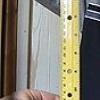
How Fast Are You?
Source Institutions
This activity is designed to let learners measure their reaction time or response time to something they see.
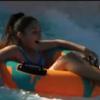
Science at the Waterpark!
Source Institutions
This activity (on page 2 of the PDF under SciGirls Activity: Water Slides) is a full inquiry investigation into speed and motion and takes place at a water park.
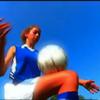
Super Bounce
Source Institutions
In this activity (on page 1 of the PDF under SciGirls Activity: Soccer Ball Kick), learners will investigate the transfer of energy using sports equipment.
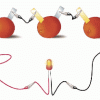
Electricity: Fruit Batteries
Source Institutions
In this activity, learners create a battery from fruit. This activity helps learners explore electricity, electrochemistry, and series circuits as well as the process of scientific inquiry.
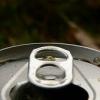
Having a Gas with Cola
Source Institutions
In this activity, learners measure the amount of carbon dioxide in a carbonated drink.

Mass of the Earth
Source Institutions
In this activity, learners use basic measurements of the Earth and pieces of rock and iron to estimate the mass of the Earth.
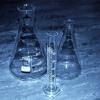
Rates of Change: Bottles and Divers
Source Institutions
In this math lesson (page 2 of the PDF), learners use bottles of various shapes to explore the abstract concept of rate of change.
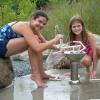
Measure the Speed of a Water Leak
Source Institutions
In this activity (page 2 of PDF under GPS: Glaciers Activity), learners will measure the rate at which water streams out of a leaky cup.
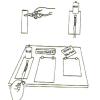
How Far?
To learn how friction affects motion, learners build a measurement tool from a rubber band and other simple materials.

Try Your Hand at Nano
Source Institutions
This lesson focuses on two simple activities that younger learners can do to gain an appreciation of nanotechnology. First, learners measure their hands in nanometers.
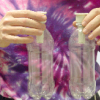
Does Air Weigh Anything?
Source Institutions
The demonstration/experiment provides quick proof that air has mass.
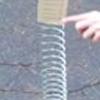
Spring Scale Engineering
Source Institutions
In this activity, learners explore how spring scales work and how they are used for non-exact weight measurement.

Measuring Your Breathing Frequency at Rest
Source Institutions
In this activity about the brain and sleep (on page 138 of the PDF), learners measure their resting breathing rates. Learners will discover that breathing frequencies vary amongst individuals.
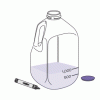
Lungometer
Source Institutions
In this environmental health activity, learners investigate their own vital lung capacities.
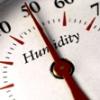
Making Sense of Sensors
Source Institutions
In this activity, learners explore sensors and focus specifically on how to measure humidity using a sensor.
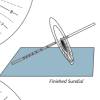
Equatorial Sundial
Source Institutions
In this activity, learners make an equatorial sundial, which is simple to construct and teaches fundamental astronomical concepts. Learners use the provided template and a straw to build the sundial.
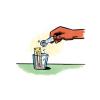
Change in Temperature: Exothermic Reaction
Source Institutions
Learners add calcium chloride to a baking soda solution and observe an increase in temperature along with the production of a gas and a white precipitate. These are all signs of a chemical reaction.
